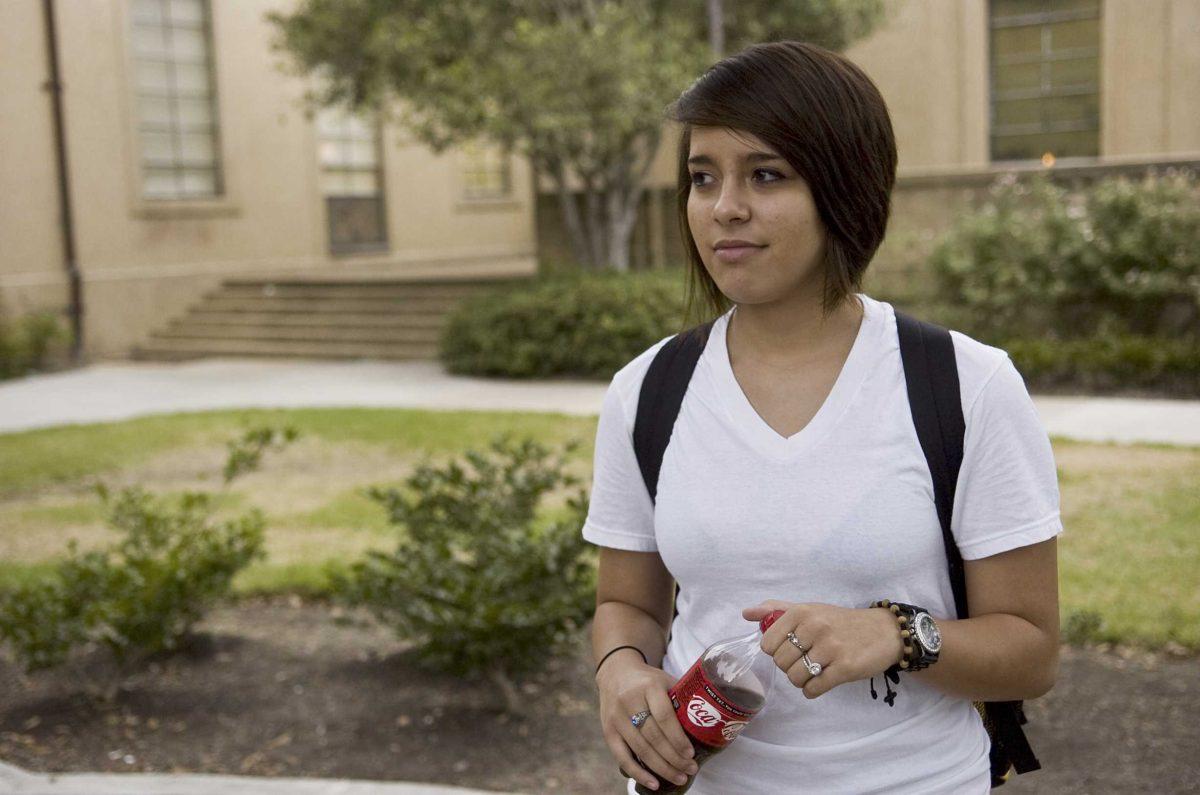Karla Delgado said she enjoys having a regular Coca-Cola every day, but the computer engineering freshman said she may not be able to enjoy her fizzy fix as often if prices in soft drinks rise.On Sept. 16, The New England Journal of Medicine published a health policy report, “The Public Health and Economic Benefits of Taxing Sugar-Sweetened Beverages,” discussing the benefits of a tax on sugary beverages. The article’s authors said a penny-an-ounce tax on sugary beverages, such as soft drinks, energy drinks, sports drinks and some juices could help the fight against obesity and provide billions of dollars for the health care reform. The tax would not include diet drinks.”A national tax of 1 cent per ounce on sugar-sweetened beverages would raise $14.9 billion in the first year alone,” the article stated. “Medical costs for overweight and obesity alone are estimated to be $147 billion — or 9.1 percent of U.S. health care expenditures — with half these costs paid for publicly through the Medicare and Medicaid programs.”The article also said a penny-per-ounce excise tax could reduce consumption of sugary beverages by more than 10 percent.Robert Hogan, political science associate professor, said economic forces cause the increase in price of a product to result in a decrease in consumption of that product.”It’s going to be something that’s very controversial,” Hogan said. “People don’t like paying taxes of any sort regardless of how tied it is to the issue of one’s health. It will be a difficult tax to be enforced.”A Sept. 17 article in the New York Times about the proposed sugary beverage tax said President Barack Obama is considering the proposed tax with “cautious openness.”Hogan said this tax will have more resistance from the American public because it will affect more of the American public than the tobacco tax.”People refer to this as the ‘nanny state’ of the government,” he said. “That hits a chord especially among people in the U.S. today. That would strike a chord in [conservatives] in a negative way, especially if Obama takes this up.”The New York Times article stated the soft drink industry created the Americans Against Food Taxes organization as a way to respond and oppose to the proposed sugary beverage tax.Kathy Saichuk, Wellness Education coordinator, said the tax would reduce consumption of beverages with added refined sugars.Saichuk said sugary beverages increase the risks of developing obesity, diabetes and coronary heart disease. She said the outcomes of the tobacco tax could be similar to a sugary beverage tax.”There’s a definite impact on putting that legislation in,” Saichuk said. “We can’t stop people from smoking completely, but raising prices [on tobacco] has stopped more people from smoking because it’s not convenient anymore.”Hogan said the 1 cent per ounce tax won’t stop consumption enough to have a big impact on obesity.”You would have to tax at a higher rate than they’re talking about to being an observable effect [in obesity],” Hogan said.Jace Sandifer, chemistry graduate student, said the government should not get involved by taxing sugary drinks.”Parents should be more responsible and monitor what their children drink,” Sandifer said.Delgado said more students may be inclined to buy diet products if the tax is passed, but she said she doesn’t like the taste of diet products, so she would have to cut back on her Coca-Cola consumption.Hogan said individual consumption of sugary beverages may not be as drastic, but consumption could change among vending machines or at sporting event concessions.Saichuk said the advantage of a tax on sugary beverages could result in the beverage industry producing healthier drink products.——Contact Mary Walker Baus at mwbaus@lsureveille.com
Health policy report promotes tax on sugary beverages
September 23, 2009
Karla Delgado, computer engineering freshman, drinks a coke on Tuesday. A proposed sugary beverage tax could increase soft drink prices a cent per ounce.





